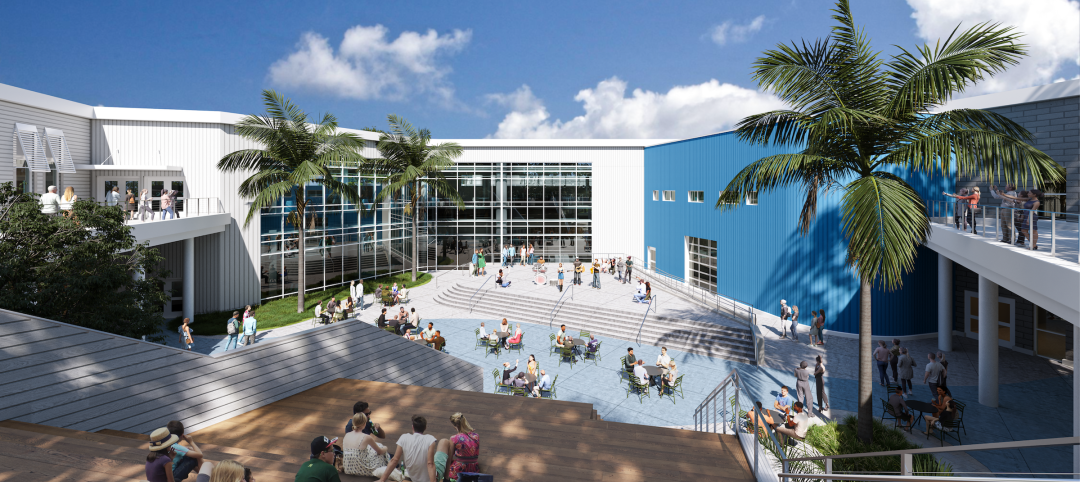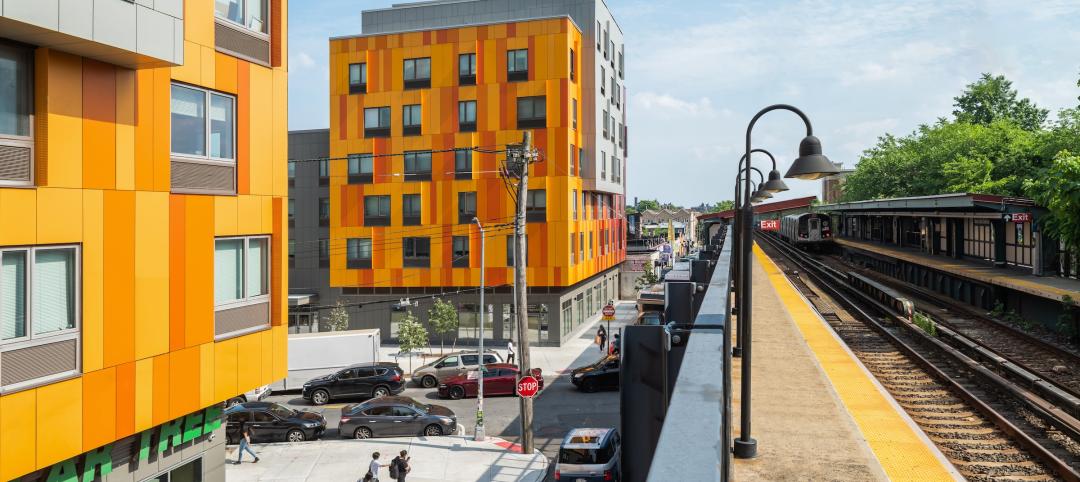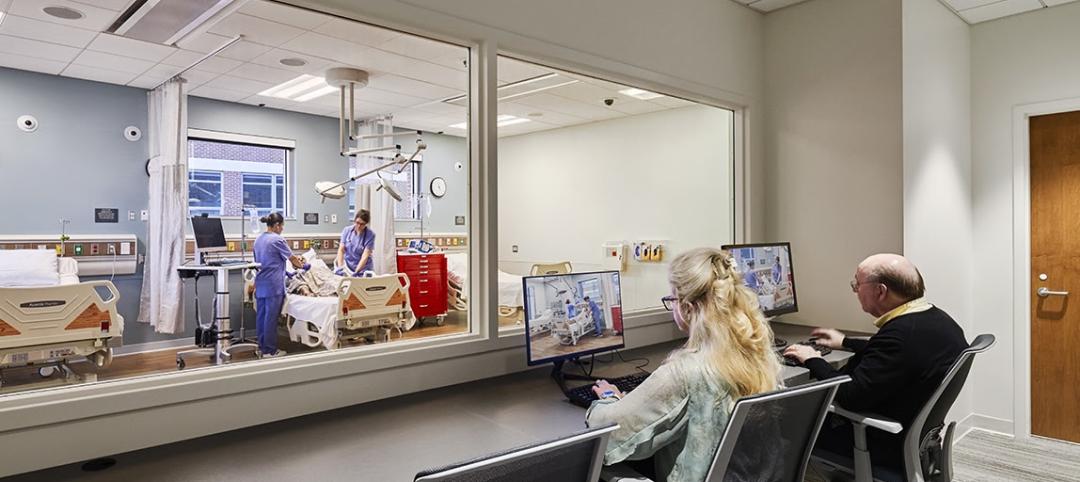Ken Martin, AIA, NCARB, has joined Leo A Daly to lead its Dallas office as Vice President and Managing Partner.
Most of Martin’s 25-plus-year career in design, planning, and management has focused on hospitality, which happens to be the Dallas office’s largest market. He joins Leo A Daly from DLR Group, where he was that firm’s hospitality and convention center expert. He reports to COO John Kraskiewicz.
Martin assumes his new post at a time when Leo A Daly has several large-scale hospitality-design projects in the works or just completed. These include the five-star 285-room Hotel Talisa in Vail, Colo.; the 582-room Ritz-Carlton Orlando Grande Lakes in Florida; and the 12-story 333-room Marriott Downtown Omaha in Nebraska, which opened last month as the first phase of that city’s entertainment Capitol District.
“Hospitality, I would argue, leads a lot of innovation,” says Martin in a video that Leo A Daly released to announce his hiring. “You cannot be reactive in this business.”
He praises his new employer as “one of the preeminent design firms in the hospitality industry,” and talks about the importance of sustainability and meeting guest expectations in hospitality design.
In a recent article he wrote for Hotel Business Review, Martin shared his thoughts about adaptive reuse as “a key piece of many [hotel] brands’ strategy,” and how authenticity in the redesign of existing buildings is “something of the Holy Grail.” On such projects, Martin said he asks the following questions to guide his teams’ designs: “What has that neighborhood been? Where is it going? Culturally, what are the drivers, and who are our local patrons going to be? What do they value? Who are the guests, why are they traveling to this city (or this neighborhood), and what are they looking for? That is to say: How do you integrate?”

Ken Martin was considering his professional legacy when, at 50, he switched firms. Image: Leo A Daly
Martin began his career as a museum exhibit designer for University of New Mexico, where he earned a bachelor’s degree in architecture. He spent nearly 27 years with DLR Group, rising to the level of Principal and National Hospitality Leader. One of the projects he was working on for DLR before he left was the renovation of the 16-story, 250-room Laylow Hotel by Marriott Autograph in Waikiki, Hawaii.
The 50-year-old Martin tells BD+C that several factors drove his decision to switch firms. For one thing, he and his wife are recent empty nesters, which gave them flexibility to relocate.
Martin was also giving more thought to his professional legacy. “I know there are is a finite number of projects I’ll get to do. So you start to ask yourself—blue sky—how can I make the biggest impact?”
He became aware that Leo A Daly was looking for a managing principal as Patricia Miller, its corporate director of hospitality, was moving into a global practice leader role for the firm. During the interview process, Martin was impressed with the projects that Leo A Daly was working on “that hint at a new level of design for the firm. This is a place where I can do signature work.”
He says that he brings a different approach to architectural programming and design, having been on the front end of DLR’s large conference center/hotel projects.
Leo A Daly is strong in the civic market. And there are other specialties across its 30 offices “that are begging to be infused with hospitality design and energy,” says Martin. The convention center/hotel sector is one of these; global healthcare and aviation are two others.
“Enlisting the strength of our hospitality teams in those projects and pursuits is a great avenue to doing great work,” says Martin.
Related Stories
Office Buildings | May 20, 2024
10 spaces that are no longer optional to create a great workplace
Amenities are no longer optional. The new role of the office is not only a place to get work done, but to provide a mix of work experiences for employees.
Mass Timber | May 17, 2024
Charlotte's new multifamily mid-rise will feature exposed mass timber
Construction recently kicked off for Oxbow, a multifamily community in Charlotte’s The Mill District. The $97.8 million project, consisting of 389 rental units and 14,300 sf of commercial space, sits on 4.3 acres that formerly housed four commercial buildings. The street-level retail is designed for boutiques, coffee shops, and other neighborhood services.
Construction Costs | May 16, 2024
New download: BD+C's May 2024 Market Intelligence Report
Building Design+Construction's monthly Market Intelligence Report offers a snapshot of the health of the U.S. building construction industry, including the commercial, multifamily, institutional, and industrial building sectors. This report tracks the latest metrics related to construction spending, demand for design services, contractor backlogs, and material price trends.
K-12 Schools | May 15, 2024
A new Alabama high school supports hands-on, collaborative, and diverse learning
In Gulf Shores, a city on Alabama’s Gulf Coast, a new $137 million high school broke ground in late April and is expected to open in the fall of 2026. Designed by DLR Group and Goodwyn Mills Cawood, the 287,000-sf Gulf Shores High School will offer cutting-edge facilities and hands-on learning opportunities.
Adaptive Reuse | May 15, 2024
Modular adaptive reuse of parking structure grants future flexibility
The shift away from excessive parking requirements aligns with a broader movement, encouraging development of more sustainable and affordable housing.
Affordable Housing | May 14, 2024
Brooklyn's colorful new affordable housing project includes retail, public spaces
A new affordable housing development located in the fastest growing section of Brooklyn, N.Y., where over half the population lives below the poverty line, transformed a long vacant lot into a community asset. The Van Sinderen Plaza project consists of a newly constructed pair of seven-story buildings totaling 193,665 sf, including 130 affordable units.
K-12 Schools | May 13, 2024
S.M.A.R.T. campus combines 3 schools on one site
From the start of the design process for Santa Clara Unified School District’s new preK-12 campus, discussions moved beyond brick-and-mortar to focus on envisioning the future of education in Silicon Valley.
University Buildings | May 10, 2024
UNC Chapel Hill’s new medical education building offers seminar rooms and midsize classrooms—and notably, no lecture halls
The University of North Carolina at Chapel Hill has unveiled a new medical education building, Roper Hall. Designed by The S/L/A/M Collaborative (SLAM) and Flad Architects, the UNC School of Medicine’s new building intends to train new generations of physicians through dynamic and active modes of learning.
Sustainability | May 10, 2024
Perkins&Will’s first ESG report discloses operational performance data across key metrics
Perkins&Will recently released its first ESG report that discloses the firm’s operational performance data across key metrics and assesses its strengths and opportunities.
MFPRO+ News | May 10, 2024
HUD strengthens flood protection rules for new and rebuilt residential buildings
The U.S. Department of Housing and Urban Development (HUD) issued more stringent flood protection requirements for new and rebuilt homes that are developed with, or financed with, federal funds. The rule strengthens standards by increasing elevations and flood-proofing requirements of new properties in areas at risk of flooding.

















